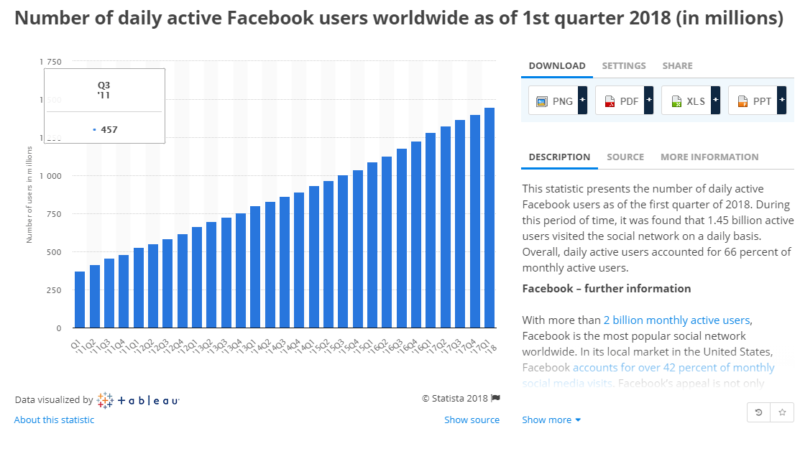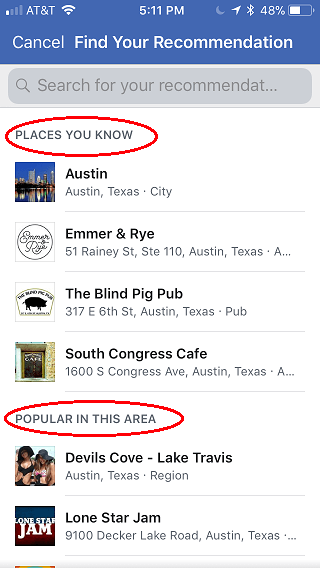 Google remains at the forefront of developments in many areas that have the potential to disrupt local search.
Google remains at the forefront of developments in many areas that have the potential to disrupt local search.
Artificial intelligence (AI), virtual reality (VR), the internet of things (IoT), voice search and cloud technology are all being increasingly used by consumers and businesses alike.
Yet there is one area where Google doesn’t sit in pole position: social media.
Google is way behind in social
Google has made several attempts to get some traction in social media: Orkut, Dodgeball, Buzz, Latitude. The fact that you likely don’t recognize these names says enough about their success.
The one Google hasn’t given up on is Google+, or more recently, “G+.” With a major rewrite of the Android app as recently as this past spring, Google has tried hard to boost its usage, even overreaching at times by mandating the creation of a G+ account in order to use certain features of its more popular products.
On the positive side, those who use it seem to like it. Google+ ranked tops amongst social media companies in last year’s American Consumer Satisfaction Index (ACSI) survey.

But when you look at the usage numbers, they lag significantly behind.
Google claimed that at the end of 2013, it had 540 million monthly active Google+ users. According to SmartInights, quoting data from StaticBrain (paywall), in 2017, it was estimated that only 4-6 million were active.

Compare that to almost 1.5 billion daily active Facebook users.

In other words, Google’s social media presence is less than 0.4 percent of Facebook’s.
Why social will win local search market share
A Local Search Association (I am affiliated with this organization) study conducted by Burke in 2016 showed that word of mouth or referrals from friends and family was tied with company websites for second place among resources that consumers used to look up or learn about local products and services.

Eighty-two percent of consumers relied on referrals, while search engines were used the most, at 92 percent.
Yet according to Nielsen’s 2015 Global Trust in Advertising study, consumers trusted recommendations from friends far more than any other source.

In the US, 82 percent of respondents trusted recommendations from people they know. For comparison, 66 percent trusted online consumer opinions (reviews), 61 percent trusted branded websites, 49 percent search ads, 47 percent video ads and 39 percent mobile ads. (I use search ads for comparison because organic Google search is disappearing).

So, why does search engine use outpace friend referrals in local search when it is trusted less? A likely explanation is access. Mobile devices are always on, and search results are immediate.
But social media is making word-of-mouth referrals just as accessible. And if consumers have easier access to local search results that they trust more, that is where they will turn.
Is it more likely for Google to attract social users or for Facebook to adopt search and commerce into its platform? Based on results to date, Google hasn’t been successful in several attempts at social media. Yet Facebook has incorporated maps, reviews, recommendations and search functions into its platform.
Edge: Facebook.
And it seems that the changes are having their desired effect. A recent study by the social media giant found that two in three Facebook users visited the page of a local business or event at least once a week.

How Facebook is combining local search and referrals
Facebook made significant changes that drastically improved the local search experience on its platform. But the changes haven’t just been great location data and indexing of Facebook business pages. Facebook needed to distinguish its search from just being a more limited version of Google search. It needed more than the convenience of not leaving the app.
Facebook introduced Recommendations as a featured newsfeed post that makes it clear to a user’s friends they are seeking referrals. When a business that is in Facebook’s database is recommended by a friend, a profile of the business is shown as part of that friend’s comment. Clicking on the mini-profile opens the business’s FB page.

And Facebook continues to add to the feature’s functionality. Friends can now search for businesses to recommend right from the comment box. Clicking on the icon pulls up a menu similar to a check-in that not only offers a search box but also lists places you’ve checked into or visited that are responsive to the recommendation request.
For example, when a friend asks for recommendations of restaurants in Austin, Texas, Facebook shows me three establishments I’ve checked into that I can simply click to recommend to my friend. It also displays other popular establishments in Austin, making it quick and easy to make a recommendation.

If waiting for responses isn’t fast enough, or if you value a certain friend’s input, Facebook has added an “ask” button so you can ping specific friends. They receive a notification that you are asking for a recommendation that links directly to the post for their comment.
Facebook must be seeing added engagement from these recommendations, as it added a promotional widget encouraging anyone who makes a recommendation to ask their own questions.
And if friends don’t respond fast enough, even when you specifically ask them, Facebook now displays friends who have recommended a business directly in search results for hotels, restaurants, home services and other local search categories. Clicking through to a business Facebook page also shows you a list of friends who have checked into a place.
The focus is local
If there’s any doubt as to the priority Facebook is giving a location with its recommendations, look at these tags listed under search results for restaurants nearby when there is no friend recommendation:
- Popular with locals.
- Recommended by 61 locals.
- Most recommended steakhouse in Plano.
- Most recommended Burger/Sushi/Chinese Restaurant in Frisco.
While Facebook doesn’t appear to have monetized these promotional tags yet, it seems poised to do so when the time is right.
Nextdoor thrives on local recommendations
Another social media platform that has locals chatting about recommendations and local businesses is Nextdoor.

Users of Nextdoor join a chat feed that can be limited to your immediate neighborhood or broadened to include those in a certain community radius. The broadest radius for my personal Nextdoor account includes 48 neighborhoods within a two-mile radius that include over 12,000 neighbors. Any content I see is from within a tight local circle, and I can customize what I see by selecting any of those 48 neighborhoods individually to include in my feed.

The most common posts on Nextdoor are classified “for sale” posts, community news such as lost dogs and road closures and those making and seeking recommendations.
Nextdoor is built on the premise that consumers trust and seek out opinions from like-minded people. Even though I don’t personally know 99 percent of those who post on the site, I feel that their values and tastes are likely to be fairly similar to mine since we have similar lifestyles and live in close proximity. Nextdoor benefits from being a truly local resource when a location is one of the most important criteria for the vast majority of purchases.
Users register with their address, which determines what geographic area content is sourced from. All posts reveal real names and the neighborhood of the writer. That means I can screen out the recommendation for a lawn service of someone who lives in a wealthy neighborhood knowing that I probably don’t need my lawn to look like the gardens of Buckingham Palace.
Right now, most recommendations occur organically as a simple post that describes a good experience with a local contractor or is made in response to someone’s request for recommendations to meet a specific need. And they can be incredibly effective.
A recent post from a neighbor near me described his experience with an “honest pool service.” He received over 30 requests for the pool guy’s contact information.
The interface is currently a bit basic and could use some improvement in indexing and business listings. But Nextdoor is clearly taking steps to build on the strength of the volume of recommendations. As a percentage of total posts, I counted approximately 30 percent of all posts were giving or seeking a recommendation for local businesses and services.
Nextdoor created a separate tab for recommended local businesses with links to directories of popular categories such as roofers, hair salons and auto mechanics. Businesses can claim their listing, although it seems relatively few have. Nextdoor is also promoting the most popular businesses with “Neighborhood favorites” in several categories.

It feels that syncing the data with useful content is still a work in progress and that there will be a better way to incorporate the features under the recommendations tab into the more widely used newsfeed. But even Facebook went through some similar growing pains. Nextdoor now has the audience and the context to really make some noise in the local search marketplace.
Data and privacy laws will make recommendations even more valuable
Offline actions are a better predictor of future behavior than measurable online actions. In other words, real-life choices, actions and behavior better predict online decisions than clicks, search history and page views. That offline behavior is a deeper and more complete picture of the real world and forms more accurate indicators of intent.
So while Google may have the greater volume of data, Facebook seems to have the ability to extract greater insights with theirs. What people share on social media is often a record of offline action. It’s not just location data check-ins, either — it’s what they did, how they spent their time, what they liked or didn’t like, what they were feeling and what they spent money on.
The Cambridge Analytica data breach and restrictions imposed by the General Data Protection Regulation (GDPR) are likely to at least decelerate developments in using data for targeting in the near future.
Recommendations, on the other hand, do not rely on any particularly data-heavy predictive algorithm. It’s pretty much an organically derived opinion offered up voluntarily. Facebook has done a nice job at greasing the axles to both give and find recommendations and will help boost its platform’s ability to help local businesses during a time when more consumers are opting out of tracking, swiping past ads and rejecting opt-in requests to collect user data.
What’s the business’s role in recommendations?
Recommendations may invoke some nervousness for advertisers about the lack of control over the message delivered.
But the business still plays an important role. Recommendations may not be as visible to the business as reviews, but similar strategies can be used to generate positive recommendations — the most important of those being to provide great customer service and a positive experience with the business.
Developing a plan to boost recommendations is especially important, as Facebook has announced it is intentionally reducing the exposure of organic posts by businesses. Commonly termed Facebook Zero based on predictions that Facebook’s goal is to reduce business posts to zero, the new policy emphasizes content created by or shared by friends. Recommendations as a category would thus arguably be the best way for local businesses to generate exposure on the platform.
Claiming business pages on social media and having those listings actively maintained to display up-to-date and accurate information is important. The look and feel of those pages and any links to your website likewise should reflect well on you. And anything that builds customer loyalty will also help.
Closing thoughts
Facebook and Nextdoor are just two examples of the way social media is stealing away local search market share from Google. But they illustrate some trends on how local search is evolving and how having the right data is more important than the volume of data in providing results people want.
Facebook certainly seems best positioned to grow its local business offerings. And despite the negative public relations for Facebook and reports of younger users ditching the app, Facebook has managed to keep the brand identities of products like Instagram separate and maintain a strong following amongst younger users.
While cross-media and changing technology will continue to open other opportunities for local marketing, social media will not only occupy the most consumer screen time but also threaten to influence where the most local dollars are spent.
Opinions expressed in this article are those of the guest author and not necessarily Search Engine Land. Staff authors are listed here.
